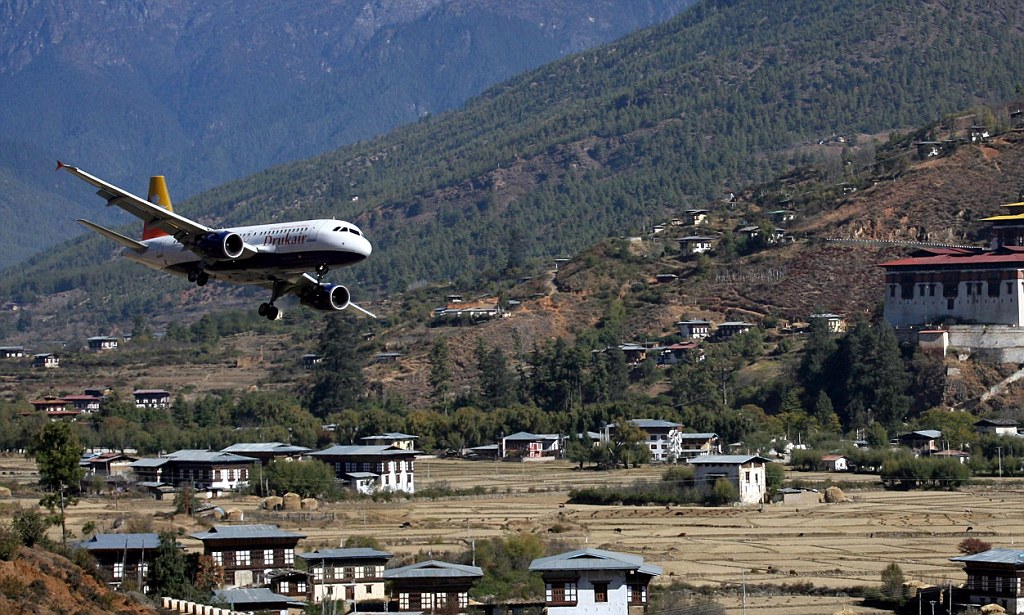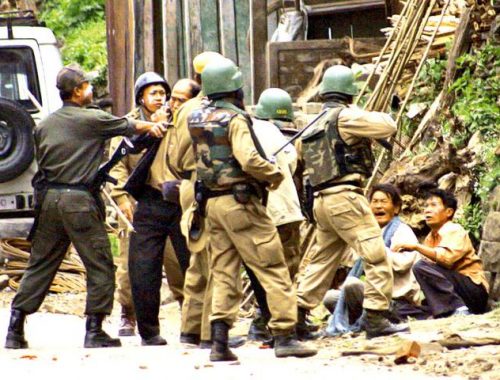The International Civil Aviation Organisation (ICAO) after its validation mission in August last year has red-flagged Bhutan for lack of effective implementations, especially in the Air Navigation Services (ANS).
ICAO red flags countries whose oversight over the aviation industry does not comply with international standards and issues significant safety concern (SSC). ICAO’s latest audited list of states show four red-flagged countries – Bhutan, Eritrea, Haiti and Kyrgyzstan.
However, a significant safety concern does not necessarily indicate a particular safety deficiency in the air navigation service providers, airlines (air operators), aircraft or aerodrome; but, rather, indicates that the State is not providing sufficient safety oversight to ensure the effective implementation of applicable ICAO standards.
Bhutan’s effective implementation also improved from 39.14 percent to 55.57 percent when the Bhutan Civil Aviation Authority was audited in August last year.
ICAO, in its analysis, asked the Bhutan Civil Aviation Authority (BCAA) to clarify who is the authorised air traffic service provider in the state (Bhutan) and designate the portions of airspace and aerodromes in relation to the ATS that are to be provided.
It also pointed out to carry out immediate corrective actions like ensuring that an ATS provider is not allowed to operate unless it has been formally authorised to do so. It also recommended ensuring that a thorough, documented review of all relevant aeronautical information of Bhutan is performed by qualified and experienced staff, to ensure clarity, consistency and compliance with the State’s legislation and organisation.
Although ICAO has not specially mentioned, the Air traffic control at the Paro international airport is currently managed by the Indian air force, which is not subject to BCAA regulations as it is a civilian regulator.
Speaking at the meet the press on March 1, information and communications minister, Karma Donnen Wangdi said that the issue is currently under discussion and that the government had a number of talks with the government of India. “As per our initial agreement with ICAO, of which Bhutan is a member, we are required to take the management of ATS by ourselves,” he said. “We are working towards it because when such Red-Flagging is done, it could have negative effect on our tourism sector,” he said.
Lyonpo said that the safety concern was raised because the air traffic navigation is handled by Indian air force. “We consider this very important and we will resolve this as soon as possible.”
Foreign minister Dr Tandi Dorji said that safety observations at Paro airport were raised since 2000. “It does not mean that safety at the airport is compromised,” he said. He clarified that as per ICAO requirement, the person handling air traffic should be certified by ICAO, but in this case, the Indian air force, which is not certified by ICAO is managing air traffic control.
He informed that following the ICAO observations, the government had taken it with the government of India and have concluded the discussion on handing over air traffic management to Bhutanese. “Following this, we will resubmit our stand to the ICAO,” he said. “We are hoping that once we take over the management of the ATA and once the air traffic controllers are certified by ICAO, this will be removed.”
Asked if the country had expertise and the resources to man the ATS, Lyonchhen Dr Lotay Tshering said that the ATS is equipped by the government. On the human resource competence, he said there are trained people to man the ATS. “Some trained people are even nearing retirement.”
Ugyen PenjoreShare




